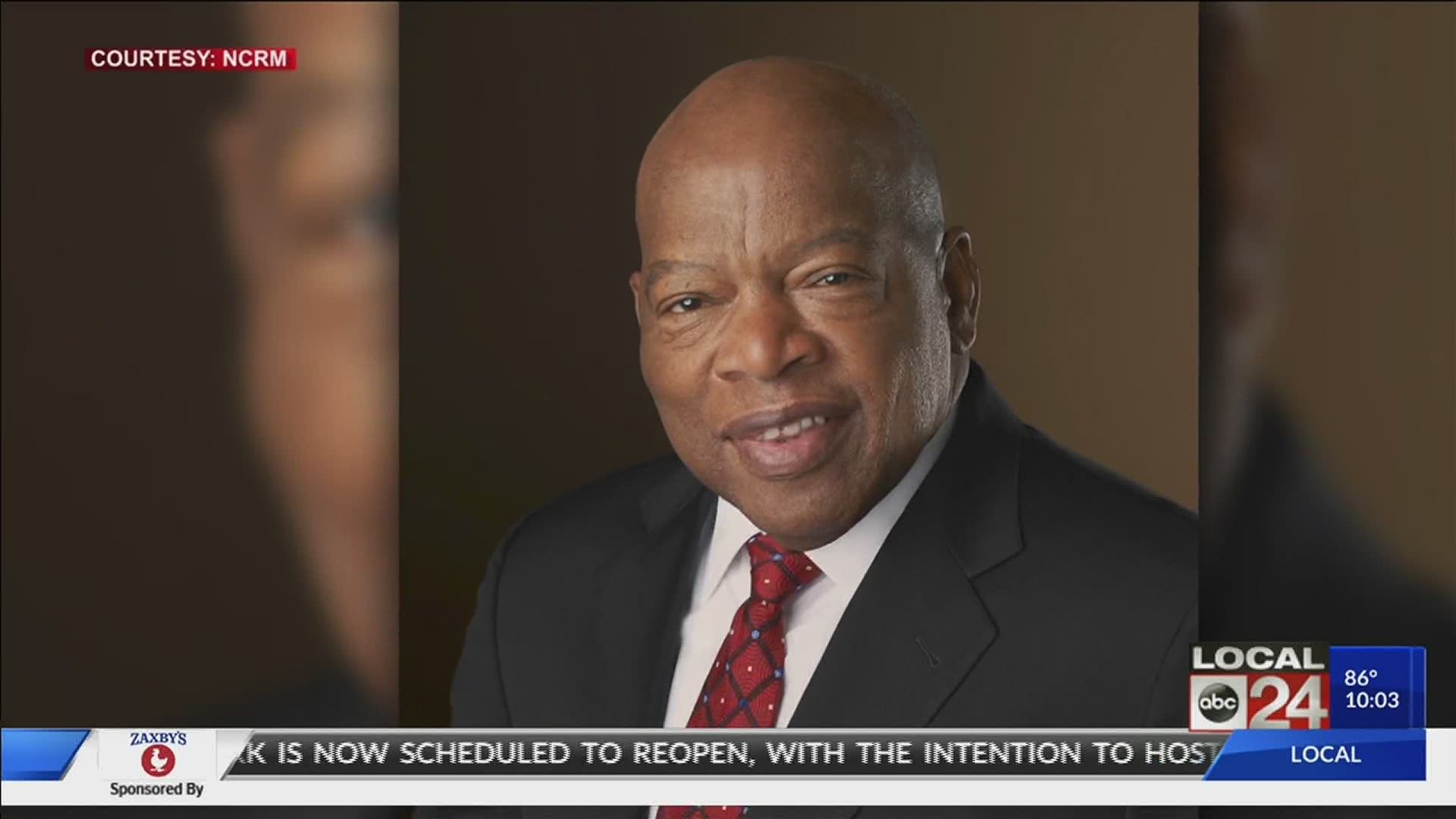MEMPHIS, Tennessee — Civil Rights leader Congressman John Lewis died on Friday at age 80 after a battle with pancreatic cancer. He is most known for his work during the Civil Rights Movement and the passage of the 1965 Voting Rights Act that gave African-Americans the right to vote.
His life and legacy will be most remembered for his courage and the maker of "good trouble." He leaves a legacy of hope, determination, and courage to keep persevering. Faith Morris, the Chief Marketing & External Affairs Officer at the National Civil Rights Museum, said he is an example for generations to come.
"His legacy is one that will hopefully help people, help all of us when we think about what our role in this life needs to be," Morris said.
Lewis was moved by the work of Dr. Martin Luther King Jr. in his late teenage years and worked closely with him during the Civil Rights era. He famously marched alongside King from Selma to Montgomery to stand up for voting rights for African Americans and was nearly beaten to death during that march.
He staged sit-ins at "whites-only" restaurants in Nashville while a student at Fisk University. Lewis later joined the Freedom Rides and during that movement, he was arrested and served 40 days at the Mississippi State Penitentiary.
At 23 years old, Lewis was one of the "Big Six" leaders who organized the March on Washington. Morris said from an early age, Lewis dedicated himself to fighting for change.
"He spent more than 60 years fighting for freedom, fighting for rights, fighting for fairness, fighting for social justice," Morris said.
When Lewis visited the National Civil Rights Museum for MLK 50, Morris said he became a dear friend to the museum.
"His heart was heavy, but also light," Morris said. "He would take your hand when he was talking to you because he felt humanity so closely."
He continued to make an impact as a lawmaker in our nation's capital and was referred to as the "conscience of Congress." Morris said he was always a guiding force for younger generations, too.
"He represented a very young mind in the movement and he kept young people close to him," Morris said.
Memphis activist Devante Hill previously worked for Lewis on Capitol Hill and said it was Lewis who inspired him to make change in Memphis.
"He said I would be effective in my own life if I were to stick with the legacy that would be coming for my work," Hill said.
Hill said, even when the road to change gets tough, he tells himself to "keep going" just as Lewis told him. He said he frequently thought of Lewis when he was leading demonstrations in Memphis after the killing of George Floyd.
"That’s all I needed to hear," Hill said. "I think that’s what we did and that’s why we’re seeing changes happening here in our city."
To honor his work, Morris said we need to find our purpose in this movement and when we are faced with adversity to remember Lewis and never give up.
"If we just keep him on our shoulder right here keep him on our shoulder to remind us and feel that nudge everyone in a while that’s him saying you keep going," Morris said.

